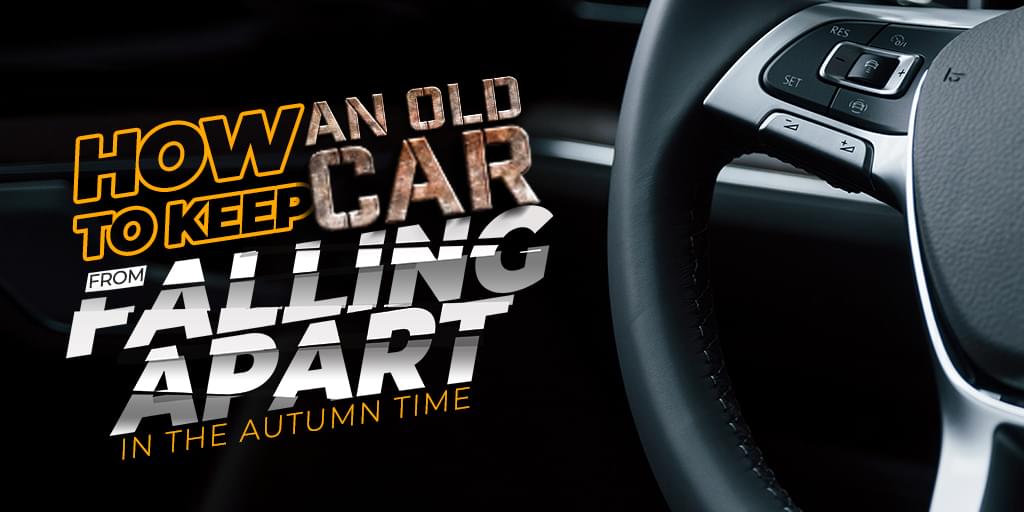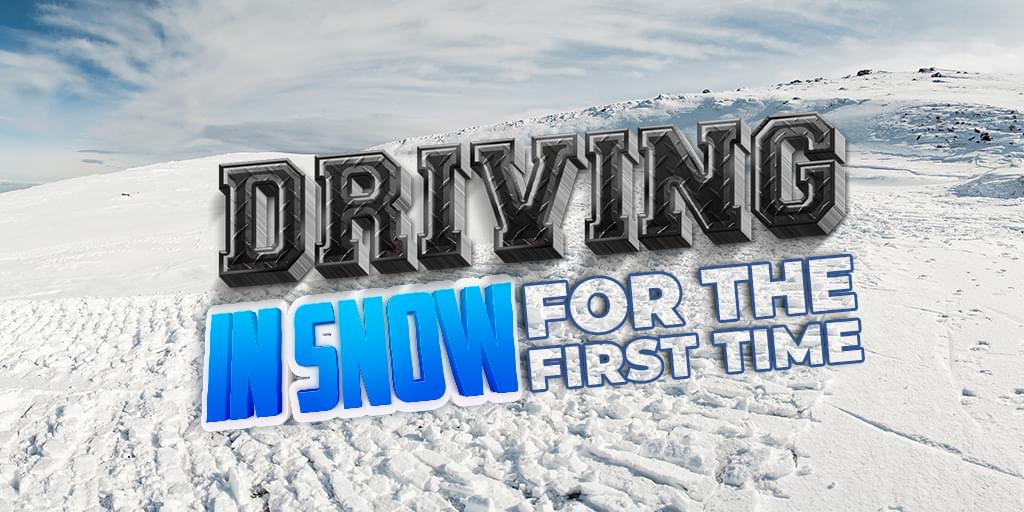Autumn is beautiful. Any new season is always a wonderful welcome, signifying a fresh start. However, like all things, autumn has its consequences, too.
The coldness that autumn brings affects the engine efficiency of your car. Engine oil solidifies. Tire pressure decreases. Autumn leaves cause road accidents. And in some instances, freezing temperature causes windshields or side mirrors to crack.
Be a wise car owner and practice fall car care tips to keep your vehicle from falling apart.
7 Important Maintenance Tips for Old Cars in Fall
As the autumn season starts, it is essential that you prepare for the seasonal changes. The transition from summer to fall can greatly affect your old cars. Therefore, it is vital that you schedule regular vehicle maintenance to ensure that the engines are in good condition.
Aside from the maintenance checks, you can also perform basic car care for your old vehicles to keep them from falling apart around this time.
1. Drive Slow for the First Five Minutes
Per common practice, drivers spend time warming up the engine in idle before hitting the road. Such a method strips oil from pistons and cylinders. In effect, you are expediting your car's deterioration instead of helping extend its lifespan.
According to mechanics, the fastest and safest way to warm up a car in the cold is to drive it at 40°F or 4°C. This alternative method prevents drying up the walls and thus helps extend the engine’s lifespan.
It also saves you time during rush mornings. However, that is not to say that you go on full speed right away. Instead, go on an easy cruise in the first 5 to 15 minutes of driving.

2. Scrape Ice Off the Windshield
Ice left on the windshield can affect your visibility and potentially cracks the glass. Proper fall car care dictates that you scrape the ice off the windshield, however harmless you think it is.
In autumn, the sun hangs low and causes glare. The days are also shorter, and darkness settles in early. These conditions limit your visibility, and the last thing you want in a gloomy surrounding is an uncleared windshield.
Use a proper ice scraper. In some states, you can get a free ice scraper from your local police station or council. A specially formulated deicer that melts the ice is also ideal, as you do not want to scrape too hard, causing scratches on the car’s surface. You can also make an effective homemade deicer using water and isopropyl alcohol.
3. Park in a Covered Garage
A lot of possibilities can happen during fall. Sometimes, late autumn wind becomes too strong, the temperature drops to subzero, or hail starts pouring. Hence, it is safer to park your car in a covered garage.
You also protect your vehicle from flying stones when the wind blows strongly and, to a certain extent, regulate the temperature of your vehicle. You help your engine and battery last long with temperature control.

4. Choose the Right Motor Oil
Did you know that motor oil comes in different grades? Some are ideal for hotter weather, while others are for colder. Engine oil naturally solidifies, partially or totally, in subzero temperatures. Part of the auto maintenance checklist is to change your motor oil according to the weather.
You can choose your preferred brand, but the general rule is that the lower the number, the more suitable the motor oil is for colder temperatures. For instance, between 10W and 5W oil, the latter is more suitable for autumn or winter. If unsure, you can ask an auto shop for a recommendation.
5. Battery Load
Colder and denser air puts a strain on your battery. According to research, at 32°F (0°C), your car’s battery loses capacity by 35%. However, at colder temperatures, say at 0°F (-18°C), the battery decreases by an astounding 60%.
If you are on a long ride, you know better than to waste battery by overloading it with electronic devices (e.g., mobile phones, seat warmers, etc.).
A car battery generally lasts between 2 to 5 years, depending on utilization. To prevent a dead battery in autumn, you can control usage, bring a spare, or have it checked before the cold season hits.
Simple habits like keeping it clean and regulating the temperature of your car by parking it indoors significantly save you from devastating battery troubles.
6. Check Tire Pressure
Tire pressure affects tire performance. You would know the right tire pressure for the type of vehicle you drive by checking the car’s manual. In general, car tire pressure drops 1 PSI for every 10-degree drop in temperature. The air inside your car tire condenses and thus consumes less space.
You do not necessarily need to replace tires unless you intend to drive through heavily snowed mountain tracks. In which case, you are better off driving a rental car designed for snow driving.
For your regular sedan, the least car maintenance tip is to check your tire pressure every day. A flat tire may cause erratic car motions. For inexperienced drivers, irregular pacing or change in movements can lead to accidental skidding.

7. Go Easy on Brakes
Broken brakes are a common cause of car accidents. It is, therefore, recommended to have your car inspected when the cold autumn season begins. The roads are slippery and dark, and the surroundings become dark faster. You cannot afford to have a loose brake.
One doable fall care tip to keep your car from falling apart is to go easy on brakes. Sudden brakes, especially after high-speed driving, cause unnecessary strain on the suspension. It also leads to premature wear and tear.
Car repair costs thousands of bucks. Unfit cars can even cost you your life. Hence, the need for regular preventive auto maintenance is of paramount importance.
How USJunkCars Can Help You with Your Old Cars
As cars get older, maintenance can get expensive, especially if some parts are no longer sold. Instead of having your unusable car take up space in the garage, USJunkCars can exchange it for cash. We pay you instant cash within a few minutes for it.
With over 28 years of experience, we pride ourselves on providing quality and prompt service.
If you are planning to sell your unwanted old vehicles, contact us online or call us at 1-888-871-4488 for more details.



